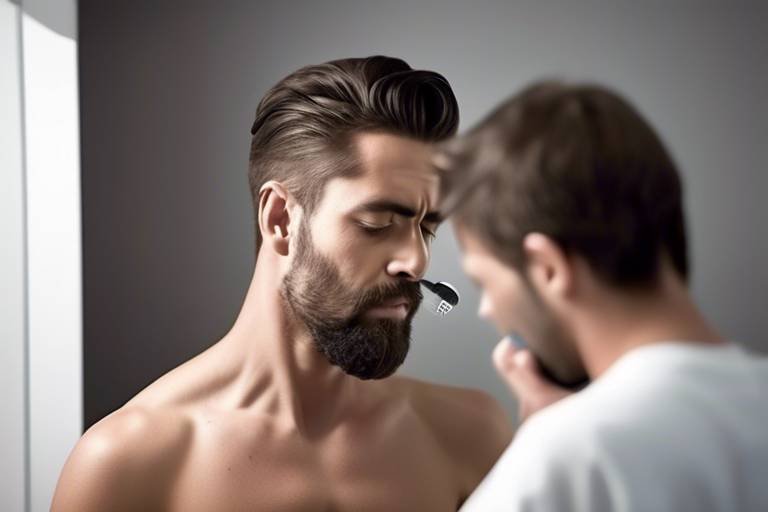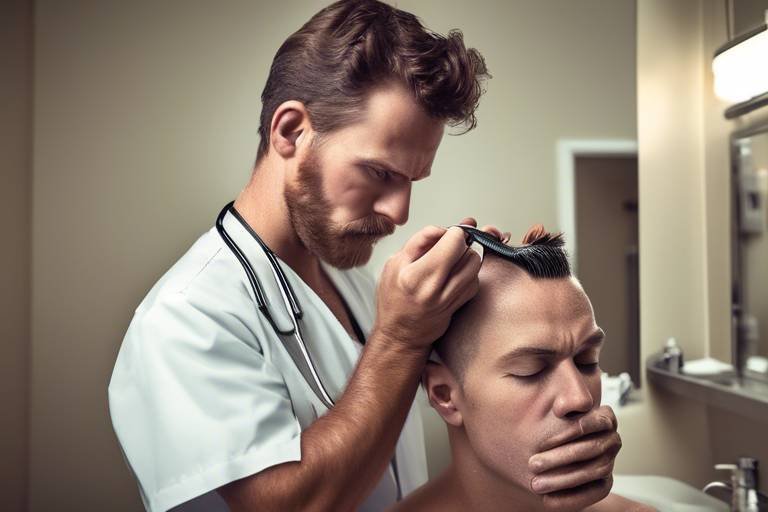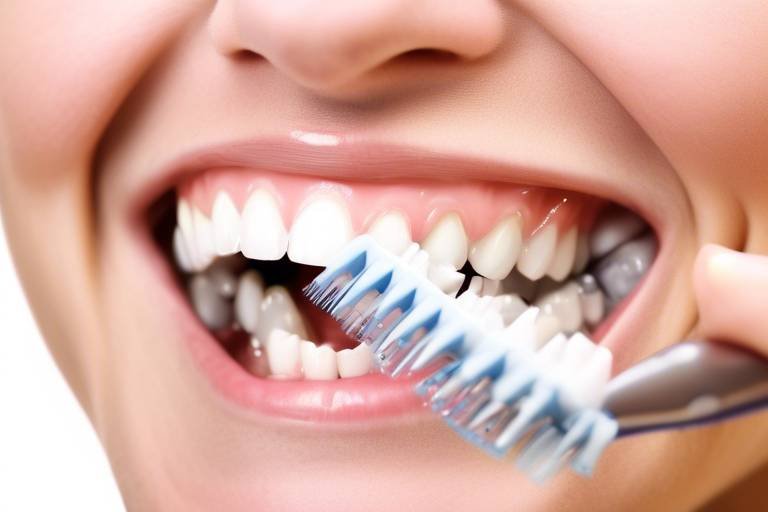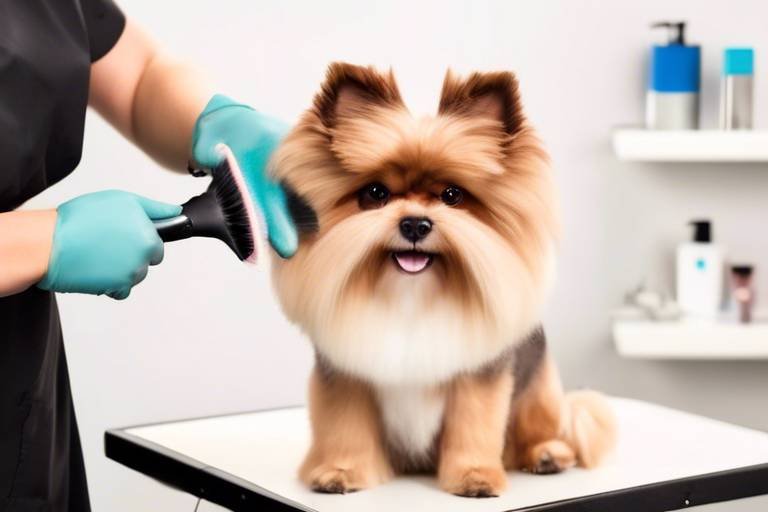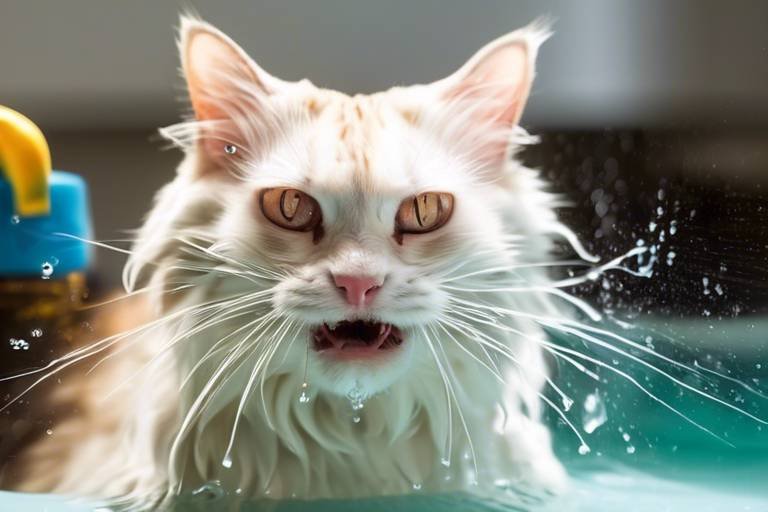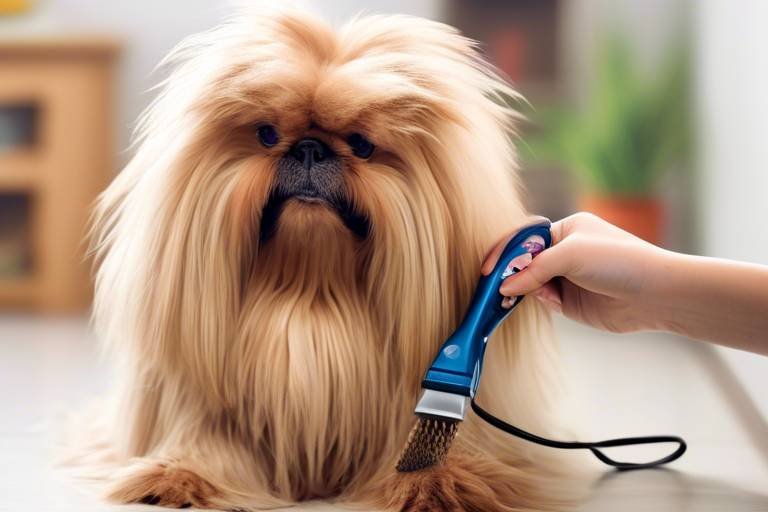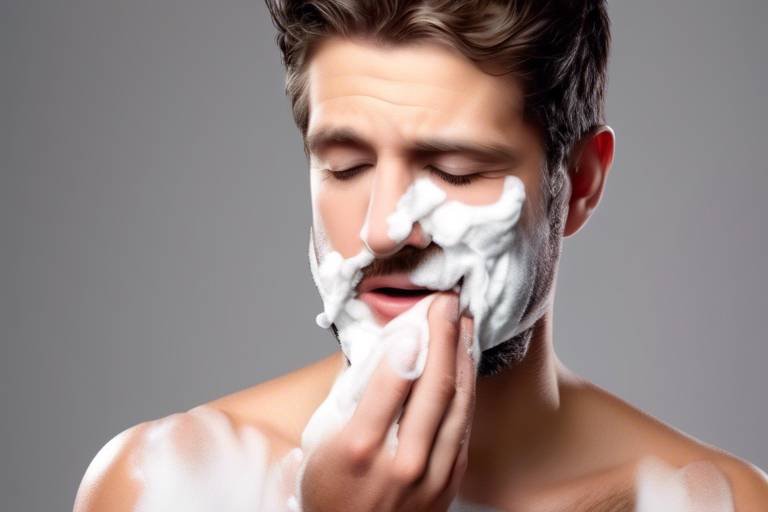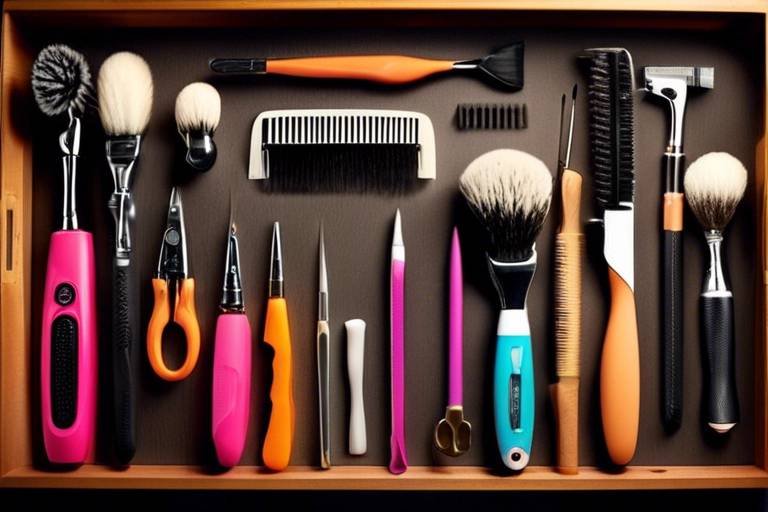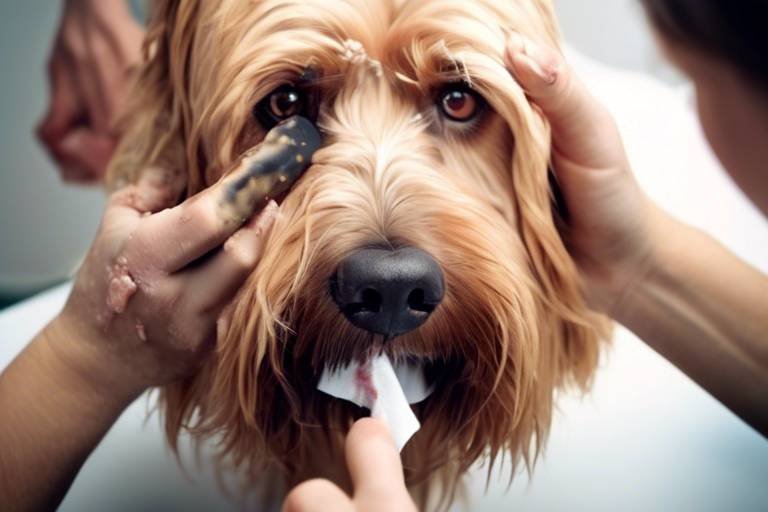Understanding the Connection Between Grooming and Health
Grooming is often seen as a superficial aspect of our daily lives, but its impact stretches far beyond mere appearances. In reality, grooming practices play a pivotal role in our overall health and well-being. Think of grooming as a bridge that connects our physical and mental states; when we take care of our bodies, we not only enhance our hygiene but also nurture our mental health. This article will explore the intricate relationship between grooming, hygiene, and health, revealing how these practices contribute to our overall quality of life.
When we talk about grooming, we’re referring to a wide array of activities that help us maintain cleanliness and enhance our appearance. This includes everything from showering and shaving to skincare and dental hygiene. These practices are essential not just for looking good but for feeling good too. Imagine waking up in the morning, taking a shower, and feeling that refreshing rush of clean water washing away the stress of yesterday. That’s not just physical cleanliness; it’s a mental reset that can set the tone for your entire day.
Moreover, grooming is deeply intertwined with personal hygiene, which is crucial for preventing infections and diseases. Regular grooming habits can help eliminate bacteria, dirt, and dead skin cells, thereby reducing the risk of skin infections and other health issues. For instance, maintaining a clean and well-groomed appearance can act as a barrier against germs that thrive in unkempt environments. This proactive approach to hygiene is especially important in today’s world, where health concerns are at the forefront of our daily lives.
But the benefits of grooming extend beyond just hygiene. It also plays a significant role in mental health. Engaging in grooming routines can be a powerful form of self-care. Just think about how a fresh haircut or a pampering skincare routine can instantly boost your mood. It’s like giving yourself a little gift that says, “You’re worth it.” This boost in self-esteem can be incredibly empowering, helping you face the world with confidence. When you feel good about how you look, it often translates to a more positive outlook on life.
Incorporating grooming into your daily self-care rituals can foster a deeper sense of well-being. Simple practices, such as applying moisturizer or styling your hair, can provide comfort and relaxation, acting as a form of meditation in your busy day. These moments of self-care allow you to reconnect with yourself and can lead to improved mental health outcomes. It's like taking a mini-vacation from the chaos of life, even if just for a few minutes each day.
Establishing a morning grooming routine can be especially beneficial. It’s a way to kickstart your day with intention and purpose. When you dedicate time to grooming in the morning, you’re not just preparing your physical appearance; you’re setting a positive tone for the day ahead. You might find that after a refreshing shower and a bit of grooming, you feel more energized and ready to tackle whatever challenges come your way. This simple act can significantly enhance productivity and focus throughout your day.
On the flip side, evening grooming rituals can serve as a calming practice, helping you unwind and prepare for restful sleep. Taking a few moments to cleanse your face, brush your teeth, and reflect on the day can create a peaceful transition into the night. This time for self-reflection and care can enhance overall mental health, making it easier to relax and let go of the day’s stresses. It's like a gentle reminder to your mind and body that it’s time to slow down and recharge.
Lastly, it’s essential to consider how societal perceptions influence our grooming habits. We often feel pressure to conform to certain standards set by society, which can impact how we perceive ourselves and our grooming choices. Understanding these social dynamics can empower individuals to make grooming choices that resonate with their true selves rather than simply following trends. By embracing our unique grooming preferences, we can cultivate a sense of authenticity that enhances both our self-esteem and mental well-being.
- Why is grooming important for health? Grooming is crucial as it helps maintain hygiene, prevents infections, and boosts mental health through enhanced self-esteem.
- Can grooming routines improve mental health? Yes, regular grooming can serve as a form of self-care, promoting a positive self-image and reducing stress.
- What are some effective grooming practices? Effective practices include regular bathing, skincare, dental hygiene, and establishing morning and evening routines.

The Importance of Personal Hygiene
Personal hygiene is not just a mundane routine; it is a vital aspect of our daily lives that significantly impacts our overall health and well-being. Think of it as the foundation of good health—a solid base that supports everything else. When we prioritize personal hygiene, we're not only keeping ourselves clean but also preventing infections and diseases that can arise from neglect. It's like keeping your car well-maintained; when you take care of the little things, the bigger issues are less likely to occur.
Regular grooming habits, such as showering, brushing teeth, and washing hands, contribute immensely to maintaining cleanliness. These habits are essential for both physical and mental well-being. For instance, washing your hands frequently can dramatically reduce the risk of illnesses, especially during cold and flu season. According to the World Health Organization, proper hand hygiene can reduce the spread of pathogens by up to 50%. That's a significant number!
Moreover, personal hygiene practices extend beyond just cleanliness. They play a crucial role in social interactions. Imagine walking into a room and feeling confident because you know you smell good and look presentable. This confidence can enhance your social life, improve your relationships, and even boost your career prospects. In fact, many studies suggest that individuals who maintain good hygiene are often perceived as more trustworthy and competent. It's a win-win situation!
However, it’s essential to recognize that personal hygiene is not a one-size-fits-all approach. Different cultures and lifestyles may dictate various grooming practices. For example, some individuals may prefer natural products, while others might opt for more commercial ones. Understanding what works best for you is key. Here are a few fundamental practices to consider:
- Regular bathing: Helps remove dirt, sweat, and bacteria from the skin.
- Oral hygiene: Brushing twice a day and flossing can prevent cavities and gum disease.
- Skin care: Moisturizing and protecting your skin can prevent dryness and protect against harmful UV rays.
In conclusion, personal hygiene is not just about looking good; it's about feeling good and living a healthier life. By incorporating simple grooming habits into your daily routine, you can significantly enhance your overall health, boost your self-esteem, and improve your interactions with others. Remember, taking care of yourself is not a luxury; it’s a necessity!
Q: How often should I shower?
A: It depends on your lifestyle. For most people, showering daily or every other day is sufficient, but those with specific skin conditions may need to adjust their frequency.
Q: Is it necessary to use deodorant?
A: While it’s not mandatory, using deodorant can help control body odor, especially if you sweat a lot. It's a personal choice that can enhance your confidence.
Q: What are some good practices for maintaining oral hygiene?
A: Brush your teeth at least twice a day, floss daily, and visit your dentist regularly for check-ups. This will help keep your mouth healthy and prevent dental issues.

Grooming and Mental Health
Have you ever noticed how a simple haircut or a fresh shave can completely change your mood? Grooming is not just about looking good; it plays a significant role in our mental health and overall well-being. Engaging in regular grooming routines can serve as a powerful form of self-care. When we take the time to care for ourselves, it can lead to a boost in self-esteem and confidence. Think about it: when you look good, you feel good. This connection between grooming and mental health is profound and worth exploring.
One of the most intriguing aspects of grooming is its ability to enhance our mood. Imagine starting your day with a refreshing shower, followed by a skincare routine that leaves your skin glowing. This simple act can set a positive tone for the day ahead. It's like putting on a suit of armor that prepares you to face whatever challenges come your way. Regular grooming can become a ritual that not only enhances your appearance but also uplifts your spirit.
Incorporating grooming into your daily self-care rituals can foster a sense of well-being. Simple practices, such as skincare, hair care, and even nail care, can provide comfort and relaxation. These moments of self-care can be compared to a warm hug for your mind and body. They allow you to pause and reflect, reminding you that you are worthy of care and attention. Moreover, these grooming routines can serve as a form of mindfulness, helping you stay present in the moment.
Creating a personalized grooming routine can transform your mental health. Consider establishing morning and evening rituals that resonate with you. For instance, your morning routine could include:
- A refreshing shower to wake you up
- Applying your favorite skincare products
- Styling your hair to feel put together
On the other hand, your evening wind-down could involve:
- A soothing face mask to relax
- A calming bath to wash away the day’s stress
- Reading a book while moisturizing your hands
These rituals not only enhance your physical appearance but also provide a nurturing space for your mind to unwind. They can help you transition from the hustle and bustle of daily life to a more peaceful state, promoting better mental health.
Establishing a morning grooming routine can set a positive tone for the day. Think of it as your personal pep rally. When you invest time in yourself each morning, you’re telling yourself that you matter. This simple act can lead to increased productivity and focus throughout the day. It’s a way of saying, “I’m ready to take on the world!”
Conversely, evening grooming rituals can serve as a calming practice, helping individuals unwind and prepare for restful sleep. Consider this time as a gift to yourself. Engaging in self-reflection during these moments can enhance your overall mental health. Whether it’s through journaling, meditating, or simply enjoying the quiet, evening grooming rituals can help you process the day and set a positive intention for tomorrow.
In conclusion, grooming is more than just a superficial act; it’s a vital component of mental health. By understanding the psychological benefits of grooming and incorporating it into our daily routines, we can enhance our self-esteem, promote relaxation, and ultimately lead happier, healthier lives.
| Question | Answer |
|---|---|
| How does grooming impact self-esteem? | Grooming can significantly enhance self-esteem by improving one's appearance, leading to increased confidence and a positive self-image. |
| Can grooming routines reduce stress? | Yes, engaging in regular grooming routines can provide a sense of control and relaxation, which helps in reducing stress levels. |
| What are some effective self-care grooming practices? | Effective practices include skincare, hair care, and maintaining personal hygiene, all of which contribute to both physical and mental well-being. |
Self-Care Rituals
In our fast-paced world, have become more essential than ever. Grooming isn’t just about looking good; it’s a powerful tool for enhancing our mental and emotional well-being. Think of it as a daily reset button that allows you to refresh your mind and body. When you take the time to engage in grooming practices, you’re not just maintaining your appearance; you’re nurturing your self-esteem and reinforcing a positive self-image.
Imagine starting your day with a simple skincare routine. You wash your face, apply moisturizer, and perhaps dab on a bit of sunscreen. This ritual does more than protect your skin; it sends a signal to your brain that you value yourself. It’s like giving yourself a high-five every morning! The act of caring for your skin can create a sense of accomplishment, helping you to feel more prepared to tackle whatever the day throws at you.
Moreover, grooming can serve as a form of mindfulness. Engaging in these rituals requires you to be present in the moment, allowing you to escape the chaos of daily life. For instance, while brushing your hair, you can take a moment to reflect on your thoughts and feelings. This practice not only enhances your physical appearance but also promotes a sense of calm and clarity. can include:
- Skincare routines that nourish your skin and soul.
- Hair care practices that boost your confidence.
- Relaxing baths or showers that wash away stress.
Incorporating grooming into your evening routine can also be a transformative experience. Picture this: you’ve had a long day, and as you prepare for bed, you take time to pamper yourself. Maybe you apply a soothing face mask or indulge in a relaxing foot soak. This isn’t just about hygiene; it’s about creating a sanctuary for yourself. Evening rituals can help signal to your body that it’s time to unwind, making it easier to transition into a restful night’s sleep.
Ultimately, these are not just tasks on a to-do list. They’re moments of connection with yourself, opportunities to practice love and care. By prioritizing grooming as a form of self-care, you’re making a commitment to your overall health and happiness. In this way, grooming becomes a holistic practice that nurtures not just your body, but also your mind and spirit.
Q: How often should I engage in self-care grooming rituals?
A: It varies from person to person! Some might find daily rituals beneficial, while others may prefer a few times a week. The key is to listen to your body and mind and find a routine that feels right for you.
Q: Can grooming routines really improve mental health?
A: Absolutely! Regular grooming can boost self-esteem, provide a sense of accomplishment, and serve as a form of mindfulness, all of which contribute to better mental health.
Q: What are some simple self-care grooming practices I can start with?
A: You can start with basic skincare, regular hair brushing, or even indulging in a warm bath. The important part is to make it a ritual that you look forward to!
Morning Routines
Establishing a morning grooming routine is like setting the stage for a grand performance; it can dramatically influence how the rest of your day unfolds. Imagine waking up, feeling groggy and unprepared, versus rising to a refreshing ritual that invigorates your mind and body. A well-structured morning grooming routine not only enhances your physical appearance but also plays a crucial role in shaping your mindset. It’s a powerful way to take control of your day, ensuring that you feel confident and ready to face whatever challenges come your way.
So, what does an effective morning grooming routine look like? It can be as simple or elaborate as you want, but the key is consistency. Here are some essential components you might consider incorporating:
- Skincare: Start with a clean face. Use a gentle cleanser to wash away the remnants of sleep, followed by a moisturizer to hydrate your skin. This not only keeps your skin healthy but also gives you a radiant glow that can boost your confidence.
- Hair Care: Whether you prefer a simple brush or a more detailed styling session, taking the time to groom your hair can significantly impact your self-image. A well-styled hairdo can make you feel polished and put-together.
- Oral Hygiene: Brushing your teeth and using mouthwash can invigorate your senses and prepare you for the day ahead. A bright smile can be one of your most powerful tools in making a great first impression.
- Dress to Impress: Choosing your outfit thoughtfully can elevate your mood. Wear something that makes you feel good about yourself, as this can set a positive tone for the day.
By dedicating just a few minutes each morning to these grooming practices, you can cultivate a sense of routine that not only enhances your appearance but also boosts your mental clarity and focus. Think of it as a daily ritual that signals to your brain that it’s time to transition from the comfort of sleep to the excitement of a new day. It’s about creating a moment of mindfulness where you can reflect on your goals and intentions for the day ahead.
Moreover, incorporating elements of mindfulness into your morning routine can further amplify its benefits. For instance, taking a moment to breathe deeply while applying your skincare products can enhance relaxation and set a peaceful tone for the day. Similarly, listening to your favorite music or a motivational podcast while grooming can uplift your spirits and energize you for the tasks ahead.
In conclusion, a well-crafted morning grooming routine is more than just a series of tasks; it’s a powerful tool for enhancing your overall well-being. So, why not take a few moments each day to invest in yourself? You deserve it!
Q: Why is a morning grooming routine important?
A morning grooming routine sets a positive tone for the day, boosts self-esteem, and enhances mental clarity.
Q: How long should my morning grooming routine take?
It can vary based on personal preference, but even a 10-15 minute routine can be effective.
Q: Can I include mindfulness in my morning routine?
Absolutely! Incorporating mindfulness practices can enhance the benefits of your grooming routine and promote relaxation.
Q: What are some quick grooming tips for busy mornings?
Consider simplifying your routine by focusing on essential tasks like skincare, brushing your teeth, and choosing a go-to outfit that makes you feel confident.
Evening Wind-Down
After a long day filled with responsibilities and challenges, establishing an evening wind-down routine can be a game changer for your mental health and overall well-being. Think of it as your personal sanctuary, a time carved out just for you to relax and rejuvenate. This period of self-care not only helps you unwind but also prepares your mind and body for a restful night’s sleep. Imagine how refreshing it feels to wash away the stress of the day, much like rinsing off dirt after a long hike. It's not just about hygiene; it's about creating a peaceful ritual.
Incorporating simple yet effective grooming practices into your evening routine can enhance your mood and promote a sense of calm. For instance, consider the soothing effects of a warm shower or bath. The warm water can relax your muscles and ease tension, making it easier to let go of the day's worries. Additionally, taking a few moments to nurture your skin with a gentle cleanser or moisturizer can feel like giving your skin a warm hug before bedtime. This act of self-care not only hydrates your skin but also reinforces a positive self-image, which is crucial for mental health.
Furthermore, don't underestimate the power of a good skincare routine. Here’s a quick overview of some effective practices you can incorporate into your evening wind-down:
| Practice | Benefits |
|---|---|
| Warm Shower or Bath | Relaxes muscles and reduces stress |
| Skincare Routine | Hydrates skin and promotes self-care |
| Mindfulness or Meditation | Enhances mental clarity and reduces anxiety |
| Reading or Journaling | Encourages reflection and relaxation |
In addition to these practices, consider integrating some mindfulness techniques into your evening routine. Taking a few minutes to meditate or practice deep breathing can significantly reduce anxiety and promote a sense of tranquility. Picture this: as you inhale deeply, you are inviting calmness into your body, and as you exhale, you are letting go of the day’s stressors. It’s a beautiful way to transition from the chaos of the day to the serenity of night.
Finally, don’t forget about the importance of disconnecting from screens. The blue light emitted from phones and computers can disrupt your sleep cycle. Instead, opt for activities that soothe your mind, such as reading a book or journaling your thoughts. This not only helps in winding down but also encourages a healthy sleep environment. Remember, your evening wind-down is more than just a routine; it's a cherished ritual that sets the stage for a peaceful night’s rest and a more productive tomorrow.
- What are some effective evening grooming practices?
Effective practices include taking a warm shower, applying skincare products, meditating, and reading. - How does grooming impact sleep quality?
Grooming can help relax your body and mind, making it easier to fall asleep and improving overall sleep quality. - Can evening routines help with anxiety?
Yes, establishing a calming evening routine can significantly reduce anxiety and promote feelings of tranquility.
Social Perceptions and Grooming
Grooming is not just a personal choice; it’s a social statement that can significantly influence how we perceive ourselves and how others perceive us. Society has established certain norms and standards regarding grooming, which can vary widely across cultures and communities. These norms often dictate what is considered acceptable or attractive, leading individuals to adjust their grooming habits to fit in or stand out. Have you ever noticed how a well-groomed person often commands more attention? It’s fascinating how a simple haircut or a well-maintained appearance can elevate someone's status in social interactions.
The pressure to conform to societal grooming standards can be overwhelming. For instance, in professional settings, individuals may feel compelled to adhere to specific grooming guidelines to project competence and professionalism. This is particularly evident in industries where first impressions are paramount. According to a recent study, approximately 70% of employers believe that a candidate’s grooming and appearance can impact hiring decisions. This statistic underscores the importance of grooming not just for personal satisfaction but also for professional advancement.
However, it’s essential to recognize that grooming practices are deeply personal and can reflect an individual’s identity, culture, and lifestyle choices. For example, some people may choose to embrace their natural hair texture or adopt a minimalistic approach to makeup, challenging conventional beauty standards. This can lead to a broader acceptance of diverse grooming practices, promoting inclusivity in society.
In understanding social perceptions of grooming, it’s also vital to consider the psychological effects. When individuals groom themselves in a way that aligns with their personal values and beliefs, it can lead to a profound sense of authenticity and self-acceptance. This is where the power of self-expression through grooming comes into play. Whether it’s sporting vibrant hair colors or opting for a clean-shaven look, these choices can enhance one’s self-esteem and confidence.
Ultimately, the relationship between grooming and social perceptions is a double-edged sword. While societal standards can motivate individuals to maintain their appearance, they can also lead to feelings of inadequacy or pressure to conform. It’s crucial for individuals to find a balance that allows them to express their unique identities while navigating the expectations set by society. Embracing personal grooming as a form of self-care rather than a mere obligation can transform the way we view these practices, fostering a healthier relationship with ourselves and our appearances.
- Why is grooming important for mental health?
Grooming can boost self-esteem and confidence, serving as a form of self-care that enhances mood and promotes a positive self-image.
- How can I establish a grooming routine?
Start with simple practices such as regular skincare, hair care, and dental hygiene, and gradually incorporate them into your daily routine.
- What are some common misconceptions about grooming?
Many people believe that grooming is solely for aesthetic purposes, but it also plays a crucial role in hygiene and mental well-being.

Grooming and Physical Health
When we think about grooming, we often picture a simple routine of brushing our hair or applying skincare products. However, grooming goes far beyond aesthetics; it plays a crucial role in our physical health as well. Regular grooming practices are essential for maintaining cleanliness, which directly impacts our overall health. By taking care of our bodies through grooming, we can prevent a variety of health issues, from skin infections to dental diseases.
One of the most significant aspects of grooming is skin health. Our skin is the largest organ in our body and serves as a protective barrier against harmful microorganisms. Neglecting skincare can lead to various conditions such as acne, dermatitis, and even more severe infections. Establishing an effective skincare routine can help maintain the skin's natural barrier, keeping it hydrated and free from irritants. A good routine might include:
- Regular cleansing to remove dirt and oil
- Moisturizing to maintain hydration
- Applying sunscreen to protect against UV damage
Moreover, grooming practices like exfoliation can help remove dead skin cells, promoting cell turnover and a healthy glow. When our skin looks good, we feel good, and this psychological boost can further encourage us to maintain our grooming habits.
Another pivotal area where grooming impacts our physical health is oral hygiene. Maintaining good dental hygiene is not just about having a bright smile; it's essential for overall health. Poor dental hygiene can lead to cavities, gum disease, and even systemic health issues such as heart disease. Regular brushing and flossing are vital components of a solid grooming routine. The American Dental Association recommends the following:
| Action | Frequency |
|---|---|
| Brushing | Twice a day |
| Flossing | Once a day |
| Dental Check-ups | Every six months |
By adhering to these practices, individuals can prevent dental issues that might otherwise lead to more significant health concerns. It's fascinating how something as simple as brushing your teeth can have a ripple effect on your overall well-being!
In addition to skin and dental health, regular grooming contributes to overall cleanliness, which is fundamental in preventing infections. Simple practices like showering regularly, trimming nails, and maintaining hair hygiene can significantly reduce the risk of bacterial and fungal infections. For instance, unkempt hair can trap dirt and oil, leading to scalp issues like dandruff or infections. Similarly, neglecting nail care can result in hangnails or fungal infections.
So, the next time you think about grooming, remember that it’s not just about looking good; it’s about feeling good and staying healthy. The connection between grooming and physical health is profound, and by embracing a consistent grooming routine, you’re investing in your long-term well-being.
Q1: How often should I groom my skin?
A1: It depends on your skin type, but generally, a daily routine of cleansing, moisturizing, and applying sunscreen is recommended for everyone.
Q2: Is dental hygiene really that important?
A2: Yes! Good dental hygiene prevents cavities and gum diseases, which can lead to more serious health issues.
Q3: Can grooming affect my mental health?
A3: Absolutely! Regular grooming can boost self-esteem and confidence, which positively impacts mental health.
Skin Care Practices
When it comes to grooming, are not just an aesthetic choice; they are a fundamental part of maintaining overall health. Think of your skin as a protective shield, and just like any armor, it requires proper care to function effectively. Neglecting your skin can lead to a plethora of issues, including acne, dryness, and even more severe conditions like dermatitis. So, how do we keep our skin in tip-top shape?
First and foremost, it's essential to establish a consistent skincare routine. This doesn't mean you have to spend hours in front of the mirror every day; rather, it’s about incorporating a few key steps that can significantly improve your skin's health. A basic routine typically includes cleansing, exfoliating, moisturizing, and applying sunscreen. Each step plays a crucial role:
- Cleansing: Removes dirt, oil, and impurities that accumulate on your skin throughout the day.
- Exfoliating: Helps to slough off dead skin cells, promoting new cell growth and a brighter complexion.
- Moisturizing: Hydrates the skin, preventing dryness and maintaining its elasticity.
- Sunscreen: Protects against harmful UV rays, which can lead to premature aging and skin cancer.
Now, let's talk about the importance of tailoring your skincare routine to your skin type. Everyone’s skin is different; some may have oily skin, while others may struggle with dryness or sensitivity. Understanding your skin type is crucial for selecting the right products. For instance, if you have oily skin, you might want to opt for lightweight, non-comedogenic products that won’t clog your pores. On the other hand, if you have dry skin, richer creams and oils could be your best friends.
Moreover, the changing seasons can also affect your skin. During winter, the cold air can strip moisture from your skin, making it essential to adjust your routine accordingly. You might need to switch to a heavier moisturizer or incorporate a hydrating serum to combat dryness. In contrast, summer may require lighter products that won’t feel heavy or greasy.
Another critical aspect of skin care is nutrition. What you put into your body can significantly impact your skin’s appearance. A diet rich in antioxidants, vitamins, and minerals can help your skin glow. Foods like berries, nuts, and leafy greens are packed with nutrients that can enhance skin health. Staying hydrated is equally important; drinking plenty of water helps maintain skin elasticity and can even help reduce the appearance of fine lines.
In summary, effective skin care practices are essential not just for looking good but for feeling good too. By establishing a tailored skincare routine, being mindful of seasonal changes, and nourishing your body from the inside out, you can maintain healthy, vibrant skin that reflects your overall well-being.
Q: How often should I cleanse my skin?
A: It's generally recommended to cleanse your skin twice a day—once in the morning and once before bed—to remove impurities and excess oil.
Q: Can I skip sunscreen on cloudy days?
A: No, it's essential to wear sunscreen every day, even when it's cloudy, as UV rays can penetrate through clouds and still cause skin damage.
Q: How do I know my skin type?
A: You can determine your skin type by observing how your skin feels throughout the day. If it feels tight and dry, you likely have dry skin. If it becomes shiny and greasy, you may have oily skin. Combination skin features both dry and oily areas.
Q: Is it necessary to exfoliate?
A: Yes, exfoliating is important as it helps to remove dead skin cells and promotes cell turnover, leading to a brighter and smoother complexion. However, be sure to choose the right exfoliant for your skin type and not to overdo it.
Dental Hygiene
Maintaining good dental hygiene is not just about having a bright smile; it’s a crucial component of overall health that often gets overlooked. Think about it: your mouth is the gateway to your body, and what happens there can significantly influence your general well-being. Neglecting your dental care can lead to a myriad of health issues, including cavities, gum disease, and even heart problems. Yes, you read that right! The connection between oral health and cardiovascular health is stronger than many realize. So, how do we ensure our dental hygiene is up to par?
First and foremost, it’s essential to establish a routine that includes regular brushing and flossing. The American Dental Association recommends brushing your teeth at least twice a day for two minutes each time. This simple act can drastically reduce the buildup of plaque, which is the sticky film of bacteria that forms on your teeth. But don’t stop there! Flossing daily is equally important as it helps to remove food particles and plaque from between your teeth and below the gum line, areas that a toothbrush simply can't reach.
Moreover, regular visits to the dentist play a vital role in maintaining dental hygiene. These check-ups are not just for cleaning your teeth; they are an opportunity for professionals to catch potential issues before they escalate. During these visits, your dentist can perform procedures like scaling and polishing, which are essential for removing tartar buildup. According to a recent study, individuals who visit the dentist regularly have a significantly lower risk of developing serious oral health issues.
Here’s a quick rundown of some key practices to maintain optimal dental hygiene:
- Brush your teeth: Twice daily with fluoride toothpaste.
- Floss daily: To remove plaque and food particles from between teeth.
- Limit sugary foods: To reduce the risk of cavities.
- Stay hydrated: Drinking water helps wash away food particles and bacteria.
- Use mouthwash: An antibacterial mouthwash can help reduce plaque and gingivitis.
In addition to these practices, maintaining a balanced diet rich in vitamins and minerals can also contribute to better dental health. Foods high in calcium, such as dairy products, and those rich in Vitamin C, like oranges and strawberries, can help keep your gums healthy. On the flip side, try to limit your intake of acidic and sugary foods, as they can erode enamel and lead to cavities.
Ultimately, dental hygiene is about more than just aesthetics; it’s a critical aspect of your overall health. By committing to a solid dental care routine, you’re not just protecting your teeth; you’re investing in your long-term health. So, the next time you pick up your toothbrush, remember that you’re not just fighting plaque; you’re also safeguarding your body from potential health issues.
- How often should I visit the dentist? It is recommended to visit the dentist at least twice a year for regular check-ups and cleanings.
- What is the best way to brush my teeth? Use a soft-bristled toothbrush and fluoride toothpaste, brushing in gentle circular motions for at least two minutes.
- Can dental hygiene affect my overall health? Yes, poor dental hygiene can lead to serious health issues, including heart disease and diabetes.
- Is flossing really necessary? Absolutely! Flossing helps remove plaque and food particles that brushing alone cannot reach.
Frequently Asked Questions
- What is the connection between grooming and health?
Grooming is not just about looking good; it plays a vital role in maintaining overall health. Regular grooming practices help prevent infections, boost mental well-being, and promote self-esteem. By incorporating grooming into your daily routine, you can significantly enhance both your physical and mental health.
- How does personal hygiene affect my health?
Personal hygiene is crucial for preventing diseases and infections. By maintaining cleanliness through regular grooming, you reduce the risk of health issues. Think of it as a shield that protects you from harmful bacteria and viruses, ensuring you stay healthy and vibrant.
- Can grooming improve my mental health?
Absolutely! Engaging in grooming routines can boost your self-esteem and confidence. When you take time for self-care, it can enhance your mood and promote a positive self-image, making you feel more empowered and ready to face the day.
- What are some effective self-care grooming rituals?
Simple practices like skincare and hair care can be incredibly comforting. Establishing a morning routine can energize you for the day, while evening rituals can help you unwind and prepare for restful sleep. These small acts of self-care can have a big impact on your overall well-being.
- How does grooming influence social perceptions?
Societal standards often shape our grooming habits, affecting how we view ourselves and how others perceive us. Understanding these dynamics can help you make informed grooming choices that align with your personal values rather than external pressures.
- What are the benefits of a good skincare routine?
A proper skincare routine can prevent conditions like acne and dermatitis, keeping your skin healthy and radiant. By prioritizing skin health, you can avoid more serious issues down the line and feel more confident in your own skin.
- Why is dental hygiene important in grooming?
Dental hygiene is a key aspect of grooming that directly impacts your overall health. Regular brushing and flossing can prevent cavities and gum disease, which are crucial for maintaining not just a beautiful smile, but also your overall physical health.

